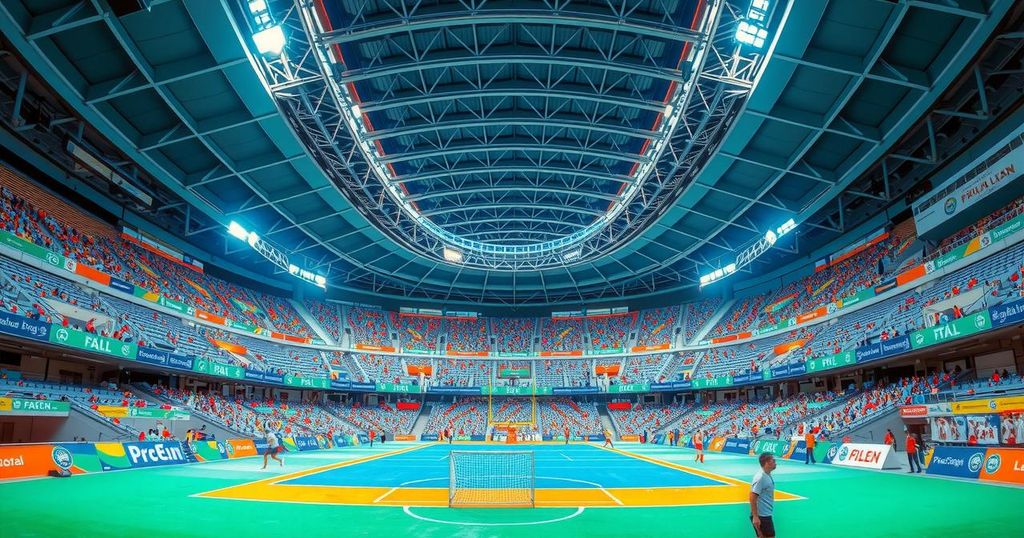Saudi Arabia: The Emerging Sporting Capital of the World

Saudi Arabia is increasingly recognized as a central figure in global sports, following Qatar’s hosting of the World Cup. The announcement of the 2034 World Cup to be held in Saudi Arabia has sparked discussions about sportswashing and human rights issues. Investment in events and notable sports figures has transformed the kingdom’s sporting landscape, yet questions about the authenticity of these developments remain.
In recent years, Saudi Arabia has emerged as a significant force in the world of sports, gaining notoriety as a prominent hub following Qatar’s successful hosting of the World Cup in 2022. The decision to hold the 2034 World Cup in Saudi Arabia has met with mixed responses, demonstrating a shift in acceptance of the nation’s growing influence in global sports. Despite past controversies concerning human rights, there seems to be a collective resignation to Saudi Arabia’s sporting ascent.
The selection of Qatar as a World Cup host initiated a series of scandals within FIFA, culminating in the resignation of Sepp Blatter in 2015. His successor, Gianni Infantino, announced that decisions regarding future World Cup hosts would be made by affirmation rather than vote, a move perceived as controversial and further entrenching corruption allegations. This transition highlights the changing dynamics within international sport governance.
Saudi Arabia’s heightened involvement in sports correlates with its ambition to modernize the kingdom amidst dwindling oil resources. Notable developments include the Neom megaproject and state-funded investments into various sporting events, such as wrestling and professional boxing matches. Events previously unimaginable in the kingdom have begun to flourish, marking a significant cultural shift.
The influx of significant sporting events, including the Saudi Arabian Grand Prix and high-profile signings in football like Cristiano Ronaldo and Neymar, represents a flood of investment aimed at revitalizing the local sports scene. This rapid transformation has led many, including critics, to label it as “sportswashing,” suggesting the government’s use of sports to obscure its human rights violations.
James Montague’s analysis posits that Saudi Arabia’s investment extends beyond reputation management; it reflects an aggressive assertion of power fueled by financial resources. The acquisition of Premier League club Newcastle United is emblematic of this strategy, with fans expressing support for the investment despite opposition from a minority viewpoint. The author underscores the intertwined nature of sports culture and the socio-political landscape within the kingdom.
Engulfed offers an account of Montague’s on-the-ground experiences in Saudi Arabia, revealing a complex sporting culture amidst prevalent restrictions on political freedoms. He engages with the local populace, deriving insights into their genuine enthusiasm for sports, albeit set against a backdrop of unyielding governance. Montague’s observations challenge prevailing stereotypes about sport in the Arab world and contribute to a deeper understanding of the cultural significance behind the kingdom’s sporting ambitions.
Saudi Arabia’s rise as a new powerhouse in the realm of sports is evident through its investments and the upcoming hosting of major global events. While the kingdom seeks to modernize and enhance its international image, critics view these endeavors as an attempt at ‘sportswashing’. Nevertheless, the enthusiasm for sports among the Saudi population remains genuine, reflecting a complex interplay between culture, politics, and entertainment within an evolving society. As the country positions itself at the forefront of global sports, questions surrounding governmental practices and accountability persist.
Original Source: www.thetimes.com








